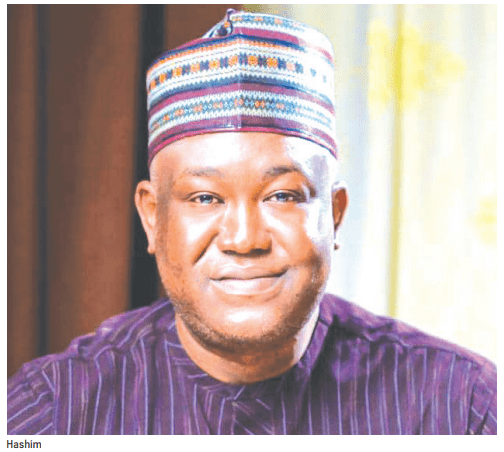A former presidential candidate and businessman, Dr. Gbenga Hashim has commended ex-military president, General Ibrahim Babangida for acknowledging his past mistakes and offering an apology to the nation.
Reacting to the debate over Babangida’s autobiography: “A Journey In Service,” Hashim described the former military president’s action as a crucial step towards national healing and reconciliation.
Hashim, who was among those detained without trial under Babangida’s regime, revealed that while he was invited to the launch of the book but was unable to attend, he later visited the former Head of State to congratulate him on the success of the project.
Hashim explained that rather than focusing on the controversies raised b the book, emphasis should be on the significance of Babangida’s admission of past mistakes.
According to Hashim, “IBB is not the only leader who made mistakes in office, but not everyone has found the courage and humility to admit their errors. What he has said and written are important testimonies for national reconciliation.”
Hashim clarified that he is neither a praise-singer nor a beneficiary of Babangida’s government, recalling his strong opposition to the regime and imprisonment under Decree 2. He, however, said since 2004, following mediation by the late Governor Abdulkadir Kure, Prof. Tunde Adeniran and Dr. Esther Uduehi, he has come to appreciate Babangida’s qualities beyond politics. “IBB is an enigma.
Despite our differences, I have come to admire his humility, simplicity, and deep love for Nigeria’s unity. To him, national unity is like a religion,” he said. Hashim also revealed Babangida’s pivotal behind-the-scenes role in ensuring Goodluck Jonathan became president under the Doctrine of Necessity during Nigeria’s 2010 political crisis.
His words: “He asked me to fly in from London when some interest groups were working to prevent Jonathan from becoming acting president.
I ran errands between him and for President Olusegun Obasanjo in Ota. I was with IBB till 1 a.m. the night President Umaru Yar’Adua was being brought back into the country. “We worked with Senate Leader, Teslim Folarin and Senator Pulka, who represented Jonathan’s camp.
The rest, as they say, is history.” Hashim stressed the urgent need for Nigerian leaders to acknowledge past mistakes, arguing that a culture of accountability and reconciliation is essential for national progress.
“As a nation, we need to apologize to some people, so we can close the chapter on hatred and move forward. The victims of the first coup, including our founding fathers, those affected by the counter-coup, and various crises in our history, these wounds need to be addressed. “Nelson Mandela worked with De Klerk to reconcile South Africa.
We must also work hard to bring our country together,” he said. In another development, Hashim decried how rising insecurity is affecting Nigeria’s agricultural sector, which according to him, has vast opportunities.
He stated this, while speaking at the 27th annual convention and the 26th annual lecture series of the Alumni Association of the Federal University of Agriculture, Abeokuta (FUNAAB), Ogun State.
Citing data by the National Bureau of Statistics (NBS), between 2022 and 2024, he said about half a million farmers were displaced during the period, leading to a loss of over N2 trillion.
He said a recent study on the Middle Belt further revealed that a drop of over 70 per cent in farming activities leading to “shortages of maize crops, and yam, among others.
According to him, the Institute of Peace Study revealed that in 2024, over 3,500 cases of kidnapping occurred in Nigeria.
His words: “Apart from the above urgent issues, there are other issues that have fairly been around for a while undermining agricultural productivity and prosperity in the sector.
“They include the following poor Infrastructure and market access as poor road networks hinder timely delivery of farm produce to markets.
The African Development Bank (AFDB) notes that post-harvest losses in Nigeria exceed $9 billion annually, primarily due to inadequate transportation and storage.”
On the role of alumni contributions to development, Hashim emphasised that “alumni association all over the world serve the same or similar purpose.” This he said, include providing a platform for networking, helping alumni stay connected and maintain relationship with the alma mater.















